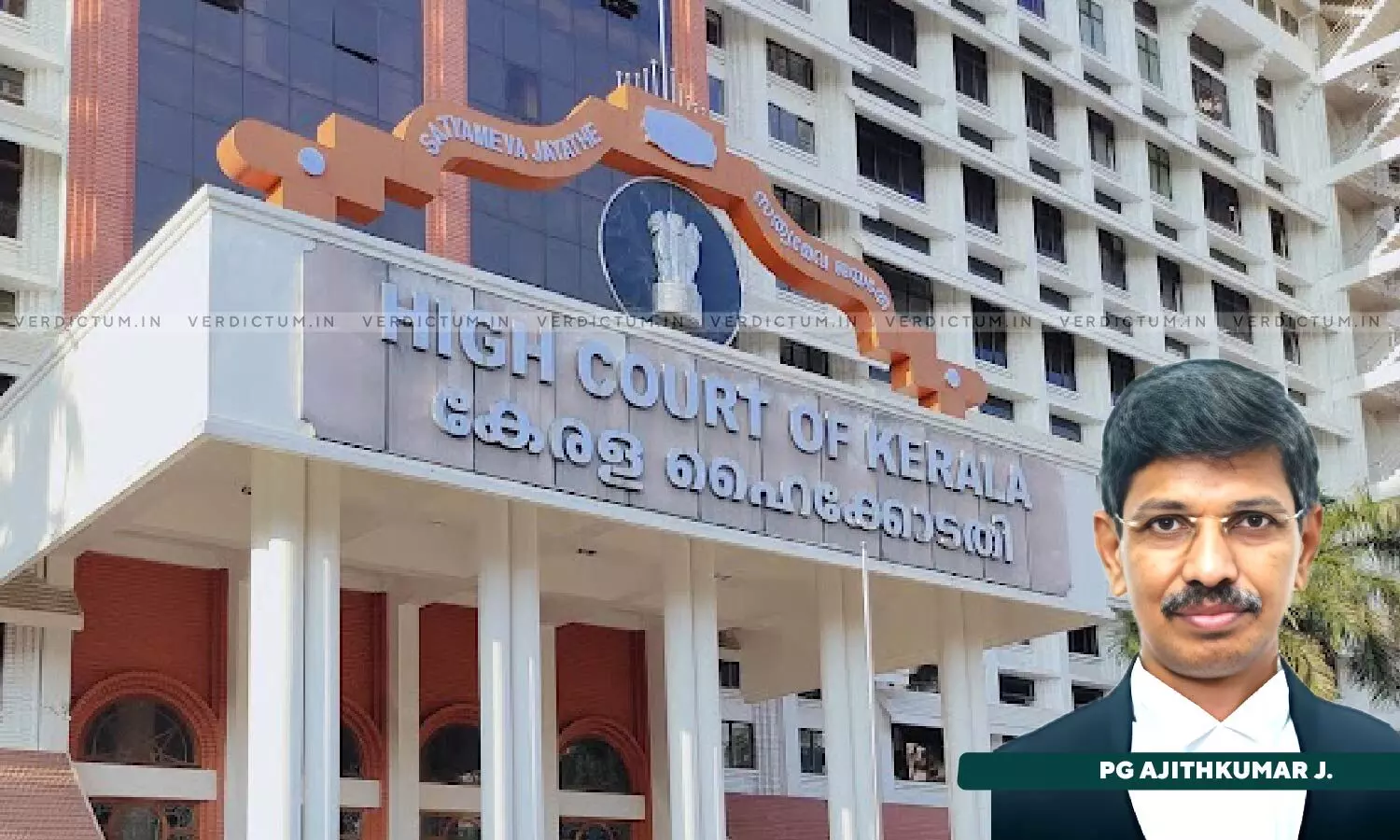
No Appeal To Sessions Court Possible Against Order U/S. 3(3) of Muslim Women (Protection Of Rights On Divorce) Act: Kerala HC
 |
|The Kerala High Court held that no appeal to the Sessions Court is possible against an order under Section 3(3) of the Muslim Women (Protection of Rights on Divorce) Act, 1986.
The High Court upheld an order of a Judicial Magistrate ordering the husband to pay maintenance. The Court observed that the Sessions Judge committed an error in entertaining and deciding the husband’s appeal.
The Single-Judge Bench of Justice P.G. Ajithkumar said, “It was without jurisdiction. When such a remedy is not provided in law, the judgment in the appeal is a non-est and can only be ignored.”
Advocate K.K.John represented the Revision Petitioner while Senior Public Prosecutor C.N. Prabhakaran represented the Respondent-State.
The facts of the case suggested that the petitioner had filed an application claiming reliefs provided under Section 3 of the Muslim Women (Protection of Rights on Divorce) Act, 1986. The Magistrate ordered the respondent to pay maintenance during the period of Iddat and also fair provision and maintenance.
The respondent filed an appeal and the order of the Magistrate was consequently dismissed. This judgment was under challenge in the revision petition filed under Section 397 read with Section 401 of the Code of Criminal Procedure, 1973 before the High Court.
At the outset, the Bench noted that when an application is filed under Section 3(2) of the Act, the Magistrate is expected to consider and pass an order as provided under Section 3(3). There is no provision in the Statute enabling the party aggrieved by that order to prefer an appeal.
The Bench held, “No provision in the Act enables reading into it the provisions concerning appeals in the Code also. In the absence of a provision in the Act for filing appeals against orders under Section 3(3), provisions governing appeals in the Code can be resorted to only if there is legislation by incorporation in the Act, either express or implied, of the provisions governing appeal under the Code. There is no such incorporation to the Act.”
The High Court further made it clear that the only provision that empowers a Magistrate dealing with a petition under Section 3(2) of the Act to bring in procedure in the Code is Rule 4 in the Muslim Women (Protection of Rights on Divorce) Rules, 1986. “In the light of the said provisions the position of law is that no appeal to the Sessions Court is possible against an order under Section 3(3) of the Act”, it added.
Reference was made to the judgment of the Top Court in Ganga Bai v. Vijay Kumar [AIR 1974 SC 1126] wherein the Apex Court has held that appeal is a statutory right and is maintainable only when some statute provides the remedy of appeal. That proposition is applicable equally to criminal matters also. The Bench further said, “Insofar as the criminal cases are concerned Section 372 of the Code statutorily prescribes also that no appeal shall lie from any judgment or order of a Criminal Court except as provided for by the Code or by any other law for the time being in force.”
The Bench concluded the matter by holding, “In the circumstances, the learned Sessions Judge committed an error in entertaining and deciding Crl.Appeal No.28 of 2019. It was without jurisdiction. When such a remedy is not provided in law, the judgment in the appeal is a non-est and can only be ignored.”
Cause Title: Shani v. Muhammed Kunju [Case No. CRL.REV.PET NO. 268 OF 2020]
Appearance
Revision Petitioner: Advocates K.K.John & Asish K. John
Respondent: Advocate B. Mohanlal & Senior Public Prosecutor C.N. Prabhakaran